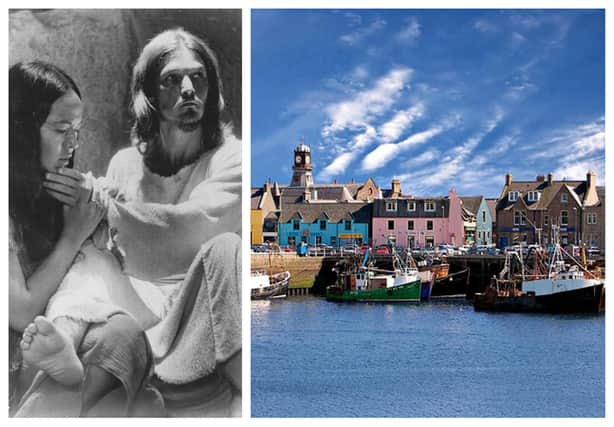When an island cinema manager was placed under a curse


Some on the Isle of Lewis were just not ready for a screening of the box office smash Jesus Christ Superstar in 1976.
The Playhouse Cinema at South Beach opened in 1934 and connected Stornoway to modern music and film. The island’s first pop concert was held there in 1970 and its programme seemed bold and free.
Advertisement
Hide AdAdvertisement
Hide AdIn early 1976, the cinema manager, Duncan McKinnnon, first felt the wrath of the Free Presbyterian Church which claimed the cinema was showing too many ‘X movies’. McKinnon simply believed “these were the kind of films people wanted,” according to a newspaper report.
That year, figures within the church scaled up their protests against McKinnon after he put the film adaptation of the Broadway smash Jesus Christ Superstar, the eight biggest release in the world that year, on the programme.
In response, Reverend William Maclean of the Free Presbyterian (FP) Church in Ness, publicly placed a biblical curse on the cinema manager given the ‘blasphemous’ nature of the film.
The letter from the minister stated: “That awful curse lies upon you now. It will lie upon you at death and to all eternity. Your only hope is to cancel immediately the blasphemous film ‘Jesus Christ Superstar’ and to cry to Christ for mercy.”
The island’s movie going population, however, did not appear to fear the church intervention with ticket sales for the film as expected. The months passed and an ill fate did indeed await the Playhouse.
In January 1977, it was reported that the 700-seat cinema was closing down after more than 40 years in the town.
Maclean told the Stornoway Gazette: “It is a cause for real rejoicing that this has happened.”
Historians Professor Callum G Brown and Dr Ealasaid Munro looked at the Playhouse ‘curse’ and other attempts to limit media in the Highlands and Islands in the latest edition of the journal Northern Scotland, which is published by Edinburgh University Press.
Advertisement
Hide AdAdvertisement
Hide AdFrom the moment that The Playhouse closed, “the myth arose that Maclean’s curse had worked,” they wrote.The article added: “It was believed by some Lewis people, on what might be described as religious grounds, that the Playhouse had closed as a result of God’s Will – a view held presumably by many of the one thousand people who had signed petitions directed at the local council to have the film banned from the island.”
The cinema closure was linked to new building regulations rather than biblical fervency but the church’s stance retained power on Lewis. According to Brown and Munro, church suspicion of film was not limited to the island “but was probably stronger there than anywhere else in Britain.”
In 1915, the opening of Stornoway’s first cinema, the Lewis Picture House, was met with ‘misgivings’ of some islanders. When the Playhouse set up in the 1930s, the FP Church fulminated over the harmful nature of film and objected to school pupils being taken to screenings given the “temptation to the children to join in the cinema going habit which has proved so hurtful to many of the youth of today.”
Brown and Munro wrote of a “series of church-led moral panic” throughout the century, including a campaign in 1967, led by the conservative Provost Anne Urquart, to stop Fanny Hill being screened in Stornoway.
“ For many adherents and clergy in the dissenting Presbyterian churches, the arrival in quick succession of film, radio and television constituted a serious threat to public morality,” the Northern Scotland article added.